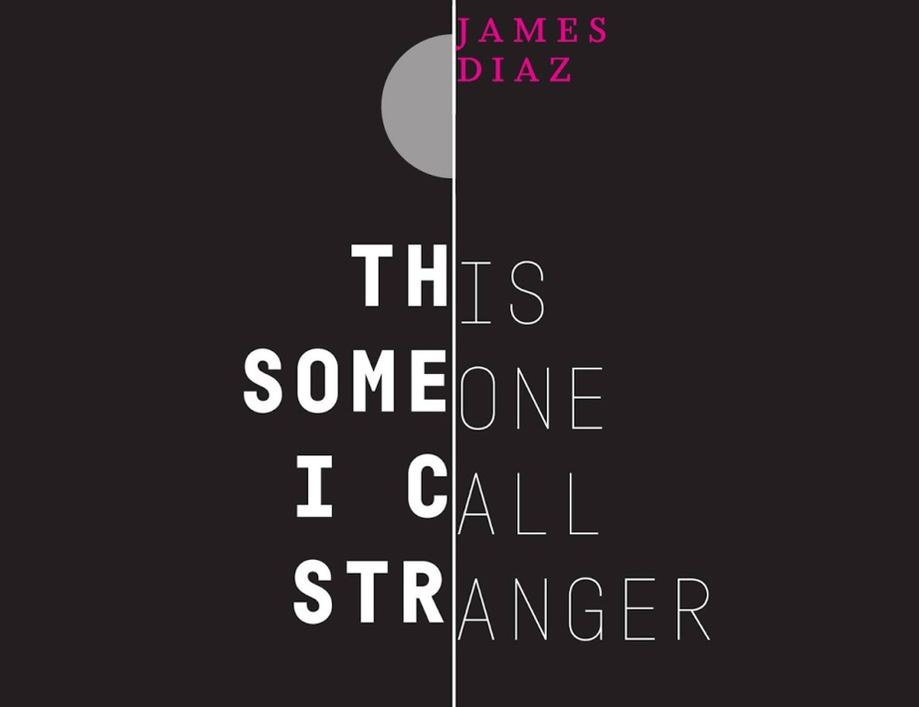|
This Someone I Call Stranger, James Diaz (Indolent Books 2018) Can a book of poetry be like a music album that defines a time of your life, or lets you enter someone else’s life, that you return to again and again? Yes, and This Someone I Call Stranger by James Diaz is one of them. Diaz aptly uses the term “trauma songs” in one of his pieces. Each poem in the book has lines in it that are like talismans, where you nod yes in deep recognition and feel that what is being sung is being sung especially to you. The wistful beauty of “we were too poor for stairs/but I dreamed of them” in Wherever You Go, There You Aren’t haunts, as does “I can’t put it out/this cigarette of a feeling” at the end of Monty III. You go to these gorgeous poems to fall into a well of sadness, then climb out with redemption as a rope, the very thing which sometimes so terribly eludes those who inhabit these poems. Diaz uses language and imagery masterfully yet understandably – poets and non-poets alike can navigate his words, absorbing what is being said as well as how it’s being said. He is never maudlin; definitely never gratuitous. “you learn to hide from all of the death eaters/the cheerleaders of nothing and nowhere” jumps out in Anyone Can Light A Match in the Dark, with a powerful bite. With this first book, Diaz offers solace. Sometimes it’s to the people that he’s met along his twisted, painful and beautiful journey – scary childhood, addiction, psych wards, depression, introspection, empathy, creativity – but many times it seems it’s to his own self, the self that is filled with despair but, stubbornly, still wants to hang on, it knows not why. “This must be it, I’ll never recover, you thought/yes you will, but you didn’t know it then”, he writes compassionately in Life Beyond This Moment. Yet, there is no escaping the stark fact that “there is no other person in the world/who could destroy you/as well as you could” in Come Morning It Will Still Be As Bad As The Day Before. Poems may come to mean a lot to the reader but what do they mean to the poet? At what cost were they written? Diaz lets us know these things firsthand, bloody-fisted; he doesn’t stand apart at a cool, impersonal distance. “how short the time of innocence is” he observes heart-breakingly in Color-Coordinated Pencil Box. James Diaz has made art out of his life, created a soundtrack to his own fragmented world that, really, is not so unfamiliar (certainly not to me). Set the record needle on This Someone I Call Stranger — and listen. *** This Someone I Call Stranger is now available for purchase directly from Indolent Books, Amazon and Barnes and Noble. Bio: Tricia Marcella Cimera is a Midwestern poet with a worldview. Look for her work in these diverse places (some forthcoming): Anti-Heroin Chic, Buddhist Poetry Review, The Ekphrastic Review, Failed Haiku, I Am Not A Silent Poet, Mad Swirl, Silver Birch Press, The Bees are Dead, Wild Plum and elsewhere. She has two micro collections, THE SEA AND A RIVER and BOXBOROUGH POEMS, on the Origami Poems Project website. Tricia believes there’s no place like her own backyard and has traveled the world (including Graceland). She lives with her husband and family of animals in Illinois / in a town called St. Charles / by a river named Fox and keeps a Poetry Box in her front yard. Comments are closed.
|
AuthorWrite something about yourself. No need to be fancy, just an overview. Archives
April 2024
Categories |

 RSS Feed
RSS Feed
